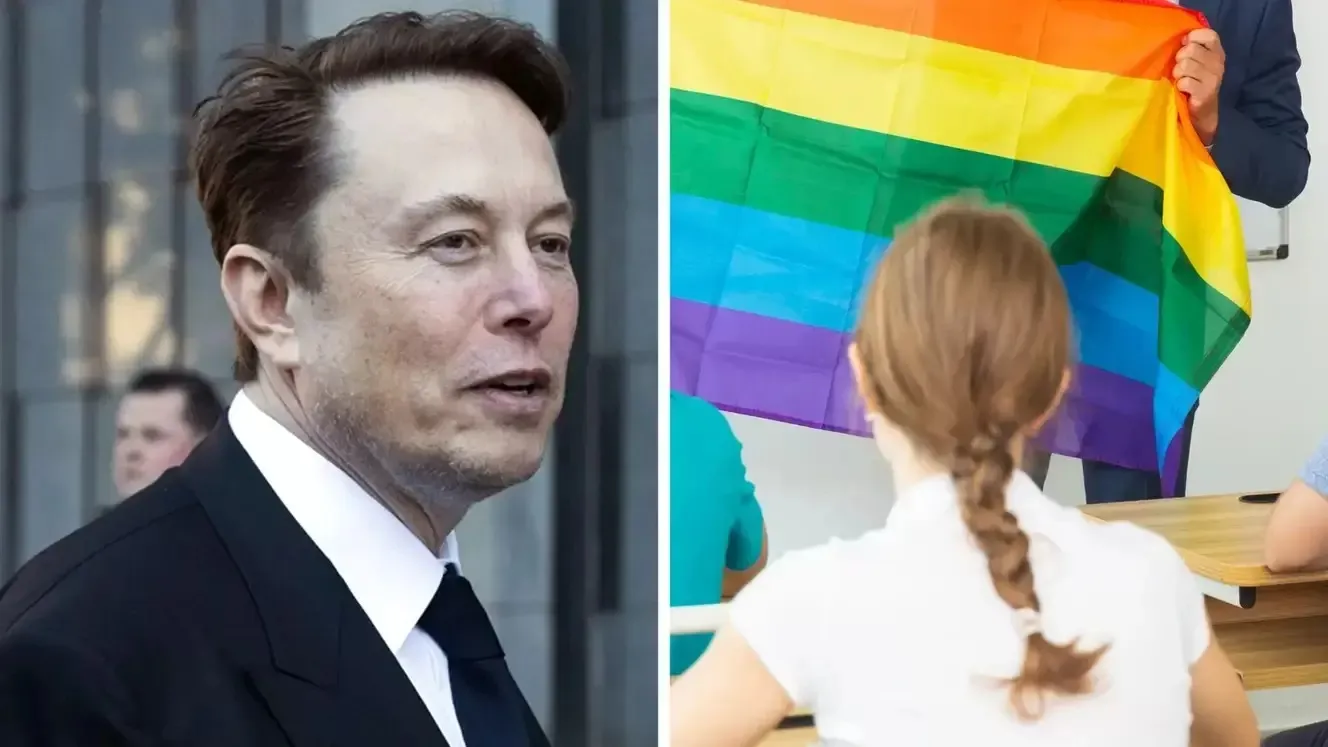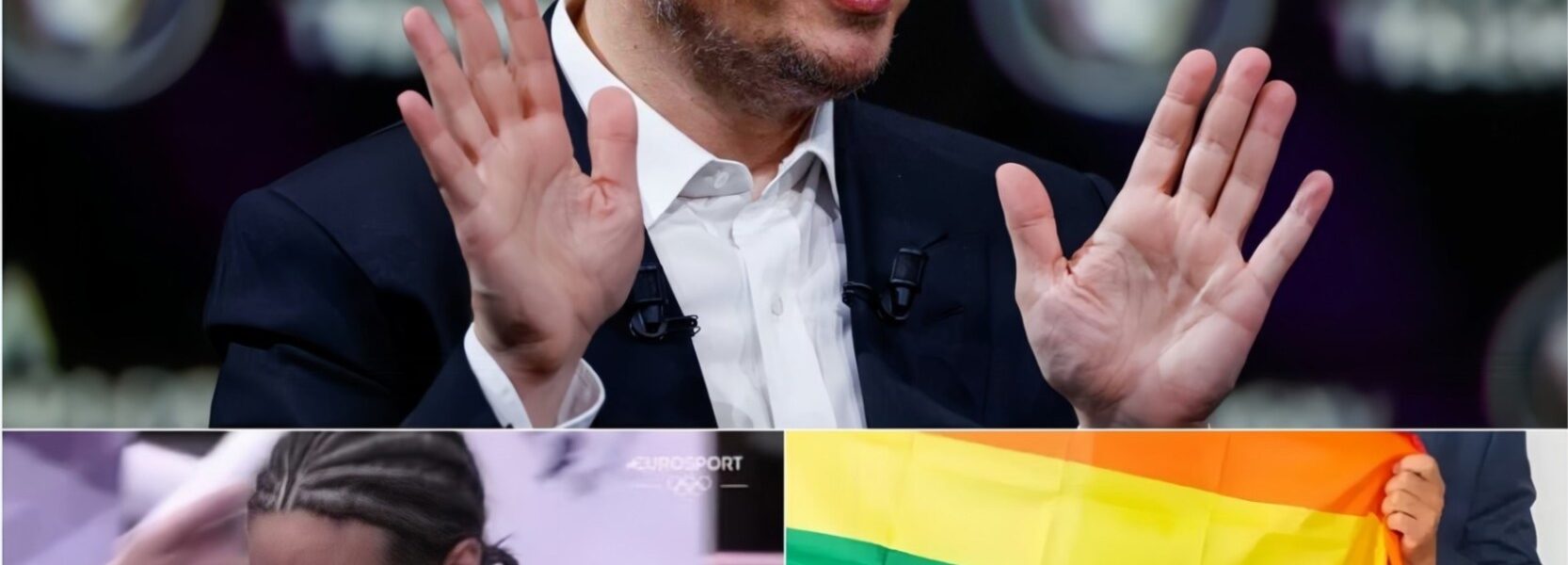Elon Musk Declares: “Pride Flags Should Be Banned from Classrooms, Forever!” Following His Snub of Boxer Imane Khelif at the 2024 Olympics.
In a controversial statement that has sparked widespread debate, billionaire entrepreneur Elon Musk has declared that “pride flags should be banned from classrooms, forever.” This declaration comes on the heels of his recent public snub of boxer Imane Khelif during the 2024 Olympics, raising questions about his stance on LGBTQ+ issues and the implications of his comments for inclusivity in education.
Musk’s remarks were made during a social media post where he expressed his views on the presence of pride flags in educational settings. “Classrooms should be places of learning, not political battlegrounds,” he stated, advocating for a neutral environment devoid of what he perceives as divisive symbols. This perspective has drawn criticism from advocates for LGBTQ+ rights, who argue that pride flags serve as important symbols of acceptance and support for marginalized communities.
The timing of Musk’s statement is particularly significant, as it follows his public interaction—or lack thereof—with Khelif, an openly queer athlete representing her country in boxing at the Olympics. Khelif has been a vocal advocate for LGBTQ+ rights and visibility in sports, and many viewed her participation in the Olympics as a moment of pride and representation. However, during a press conference, Musk appeared to dismiss her achievements, leading to accusations of insensitivity and ignorance regarding LGBTQ+ issues.
Khelif responded to the incident, stating, “Visibility matters. When someone like Elon Musk ignores you, it sends a message that our achievements are not valued. Pride flags represent hope and acceptance for many, especially in sports where representation is crucial.” Her comments highlight the importance of representation and support in creating an inclusive environment for all athletes, regardless of their sexual orientation.

Critics of Musk’s stance argue that banning pride flags from classrooms is not only a step backward but also undermines the progress made in promoting diversity and inclusion in educational settings. Many educators and students view pride flags as essential symbols of support, particularly for LGBTQ+ youth who may feel isolated or marginalized. Supporters of LGBTQ+ rights contend that having visible symbols of acceptance can foster a sense of belonging and encourage open discussions about identity and diversity.
In contrast, supporters of Musk’s views argue that classrooms should remain politically neutral and focused on education rather than personal ideologies. They assert that introducing symbols like pride flags can lead to discomfort among students who may not share the same beliefs or identities. This argument, however, has been met with considerable backlash, as many believe that prioritizing political neutrality over inclusivity can perpetuate a culture of silence regarding important social issues.
The reaction to Musk’s comments has been swift and polarized. LGBTQ+ advocacy groups have condemned his statements, emphasizing that pride flags play a crucial role in normalizing diverse identities and experiences. Activists argue that removing such symbols from classrooms does not eliminate the existence of LGBTQ+ individuals but rather silences their presence and contributions to society.
In the wake of Musk’s remarks, discussions surrounding the role of corporations and public figures in supporting or opposing LGBTQ+ rights have intensified. As a prominent figure in technology and business, Musk’s statements carry significant weight and influence. Critics fear that his views may embolden others to adopt similar stances, potentially undermining the progress made in advocating for LGBTQ+ rights.

As the debate continues, it raises larger questions about the responsibilities of public figures in addressing social issues. Should influential leaders take a stand on matters of inclusion, or should they remain neutral? The response from the public and industry stakeholders will likely shape the discourse surrounding LGBTQ+ rights and representation for years to come.
In conclusion, Elon Musk’s declaration to ban pride flags from classrooms has ignited a contentious dialogue about inclusivity, representation, and the role of public figures in advocating for marginalized communities. As advocates like Imane Khelif strive for visibility and acceptance, the future of LGBTQ+ representation in education and beyond hangs in the balance. The conversation surrounding these issues will be pivotal in shaping a more inclusive society where all individuals feel valued and accepted, regardless of their identity.




